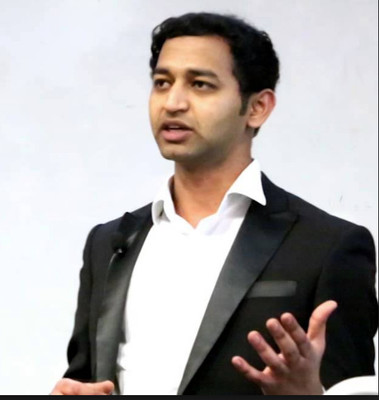A Geelong discovery that adds five weeks to the shelf-life of milk could “absolutely change” Australia’s dairy industry, according to the man behind the technology.
Sri Balaji Ponraj’s breakthrough treated milk with microscopic plasma bubbles rather than pasteurisation, he explained.
The plasma method was “less aggressive”, so the milk lasted longer without losing nutritional value, Dr Ponraj said.
“We use a needle to send tiny gas bubbles through the milk, which can then be converted into plasma that provides an environmentally friendly, non-thermal approach to decontamination,” he said.
“Using this method, the shelf life of milk can be pushed out to six weeks minimum, which could absolutely change the landscape of the bovine dairy industry.”
The method could also have implications for the supply of human breast milk in hospital wards and nurseries, Dr Ponraj said.
He pioneered the system with Dr Jane Dai at Deakin University’s Institute for Frontier Materials, at Waurn Ponds.
Dr Ponraj was among 850 Deakin students who recently celebrated their graduation in three ceremonies at the university’s Waterfront campus.
Graduates such as Dr Ponraj would become “part of the valuable global network of Deakin alumni that links together people, information and ideas”, said vice-chancellor Jane den Hollander.
“The greatest innovations in history always come from people who are bold enough to explore new frontiers and think differently,” Professor den Hollander said.
“The key message of this week’s graduation ceremonies is that our students are now ready to go into action – to be curious, brave, creative and persistent in chasing their goals.
“Ideas, knowledge and know-how are the critical currency for success in the 21st century, and discoveries like the one Sri Balaji Ponraj has already made show just what a difference we can make when we combine ideas, technology and drive.
“I am confident that this group of graduands will pursue their passion and put their degrees to work to make a difference in the world.”
Ponraj discovers long life for milk

Digital Edition
Subscribe
Get an all ACCESS PASS to the News and your Digital Edition with an online subscription
Further bonus for Ioniq 5
The Ioniq 5 burst onto the local electric vehicle scene more than three years ago like the greyhound favourite out of a trap at...








